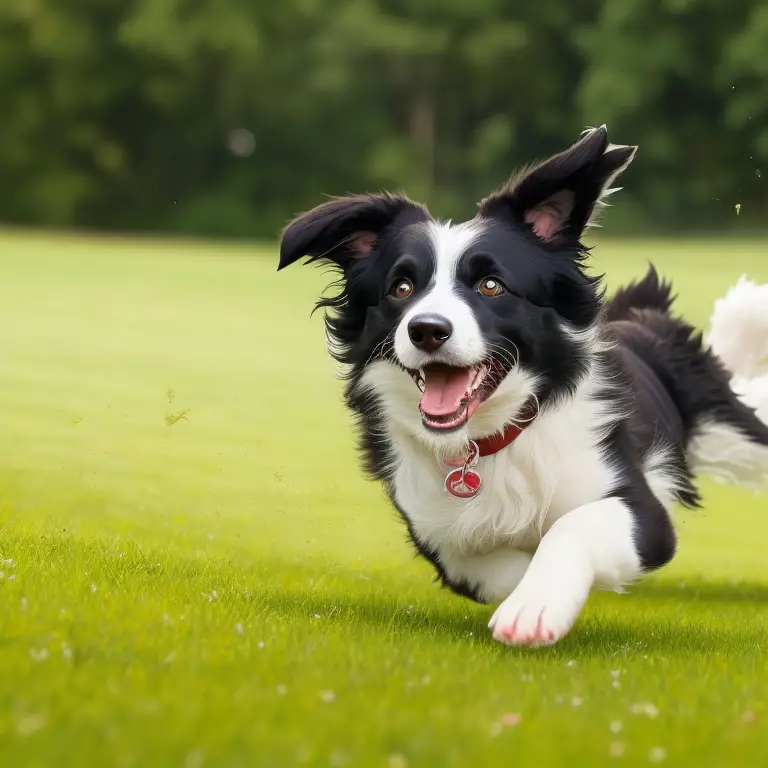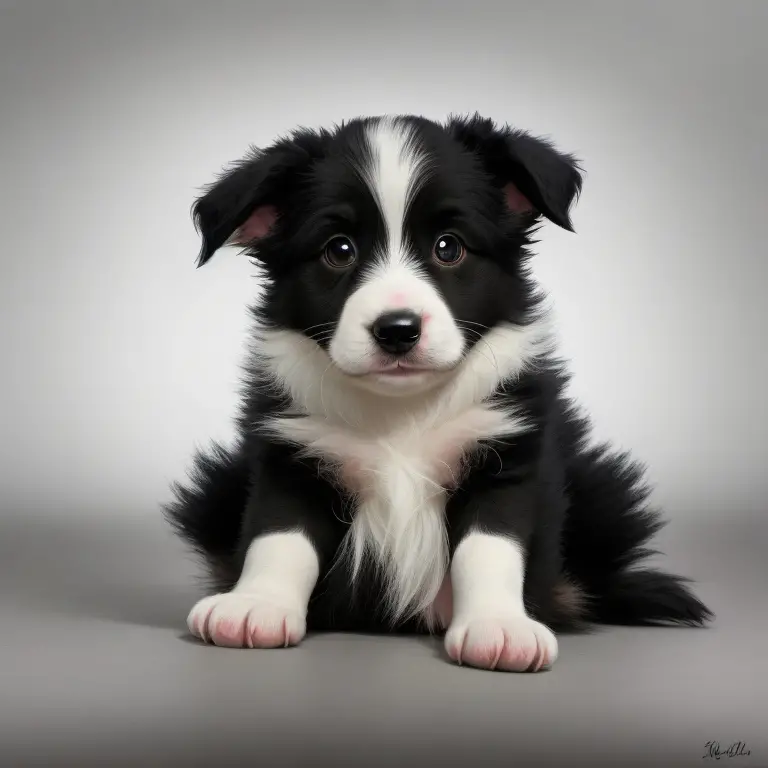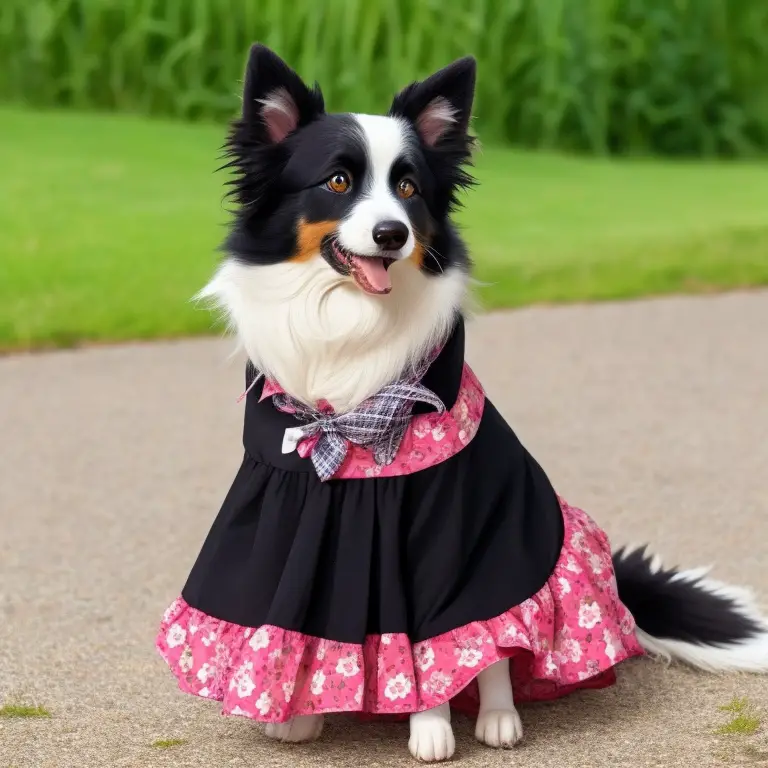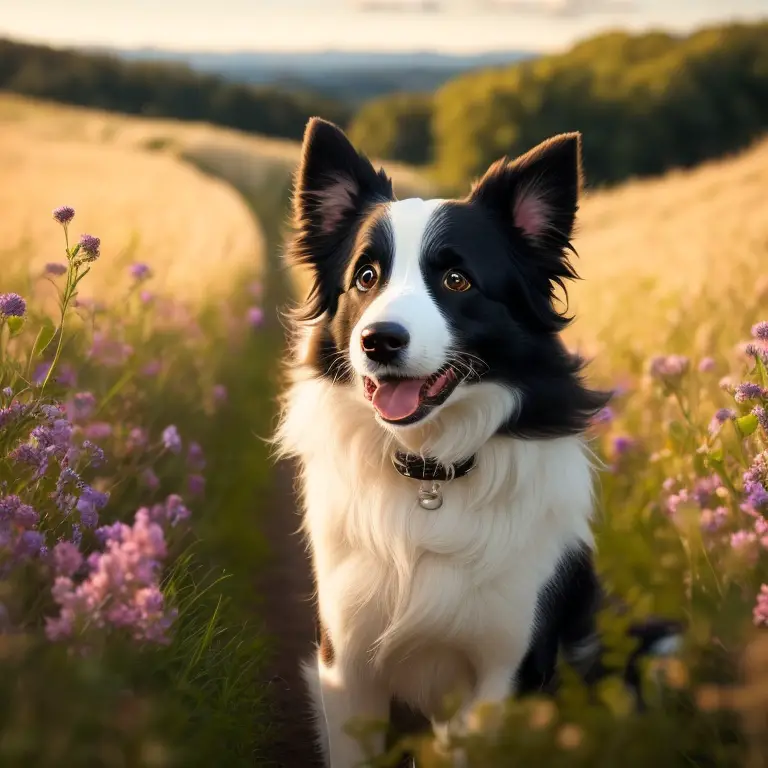Can Border Collies Be Trained For Competitive Sheepdog Trials?
Are you familiar with the remarkable abilities of Border Collies when it comes to herding livestock? These intelligent dogs are regarded as some of the best herding breeds in the world.
However, their innate skills are taken to new heights in competitive sheepdog trials.
These trials showcase the agility, intelligence, and precision that Border Collies bring to the table. But can any Border Collie be trained for this type of competition?
In this article, we’ll dive into how Border Collies are trained for sheepdog trials, the challenges that come with it, and the inspiring stories of their success in the field.
| Question | Answer |
|---|---|
| Can Border Collies be trained for competitive sheepdog trials? | Yes |
| What makes Border Collies suitable for sheepdog trials? | Intelligence, obedience, stamina, and herding instinct |
| What are some challenges in training a Border Collie for sheepdog trials? | Overexcitement, focusing on commands, and time commitment |
| What are benefits of competing in sheepdog trials with a Border Collie? | Bonding with the dog, honing training skills, and potential prize money |
Background on Border Collies and Sheepdog Trials
Overview of Border Collies
Border Collies are a highly intelligent and trainable breed of dog. They are known for their incredible work ethic, loyalty, and ability to learn complex tasks quickly.
This makes them a popular choice for sheepdog trials and other working dog competitions.
Border Collies are medium-sized dogs that typically weigh between 30-45 pounds. They have a distinctive appearance, with a long coat that can be black and white, tri-color, blue merle, or red.
They are also known for their intense stare, which is an important trait for herding purposes.
In addition to their impressive intelligence and trainability, Border Collies are also highly energetic and require a lot of exercise and mental stimulation. They are happiest when they have a job to do, making them a perfect fit for sheepdog trials and other working dog competitions.
Overall, Border Collies are an excellent choice for those looking to compete in sheepdog trials and other working dog competitions.
Their intelligence, loyalty, and work ethic make them a valuable asset in any situation.
Overview of Sheepdog Trials and Training
Sheepdog trials are competitions that test the abilities of working dogs to herd and control sheep in various scenarios. The trials typically require the dogs to follow commands and work through obstacles to gather and move sheep across designated areas.
Training for sheepdog trials involves teaching the dogs necessary commands such as “lie down,” “walk up,” “come by,” and “away to me.” These commands are used to direct the dog’s movements and get them to perform the required tasks.
Sheepdogs are trained to think independently and take cues from their environment. Therefore, the dogs are encouraged to make decisions and work out strategies to control and move sheep.
Sheepdog training usually begins at a young age, as early socialization can help the dog develop good communication skills with both the trainer and the sheep.
Overall, sheepdog trials require a high level of skill, discipline, and endurance. Training for these competitions can take years, and it takes a highly skilled dog and handler team to achieve success.
How Border Collies are Trained for Sheepdog Trials
Types of Commands Used in Training
Border Collies are trained using a variety of commands in sheepdog trials, each with its own specific purpose. Here are the most common commands used in training:
- Flank Commands: These commands are used to instruct the dog to move left or right in a circular motion around the flock. The two flank commands are “come bye” (move counterclockwise) and “away to me” (move clockwise).
- Stop Commands: These commands are used to halt the dog’s forward motion and are essential to controlling the dog. Common stop commands include “lie down,” “stand,” and “stop.”
- Directional Commands: These commands are used to send the dog in a specific direction, such as “walk up” (move forward), “get out” (move wider), and “look back” (turn around and look behind).
- Gathering Commands: These commands are used to move the dog toward the flock, such as “fetch” (bring the sheep to the handler), “get back” (move away from the sheep), and “steady” (slow down).
It’s crucial to remember that Border Collies have an exceptional ability to understand and execute commands, so the training process can be both rewarding and challenging. The combination of verbal and physical cues helps Border Collies understand and obey instructions, leading to a successful sheepdog trial performance.
Techniques Used in Training
Training a Border Collie for sheepdog trials requires specific techniques to ensure success in competition. Some of the most important techniques used in training include:
- Positive Reinforcement: Border Collies respond well to positive reinforcement, such as treats, praise, and toys. Rewarding desired behaviors encourages dogs to repeat those behaviors in the future.
- Clicker Training: Clicker training involves using a clicker to indicate when a desired behavior is achieved, followed by a treat or other reward. This method is effective in shaping behaviors and teaching new commands.
- Short Sessions: Border Collies have a high energy level and attention span. Short training sessions, between 10-15 minutes, are more effective than longer ones as dogs are more focused during shorter periods.
- Repetition and Consistency: Consistent training and repeated commands will create muscle memory in a dog’s behavior. Dogs will learn how to react and respond in a particular situation, which leads to better performance in trials.
- Monotasking: Tasking a dog with training on a single objective at a time will help to prevent confusion and frustration, maximizing their ability to learn each command.
Remember, training a Border Collie for competitive sheepdog trials takes time and patience. Your furry friend will require continuous practice and positive reinforcement to perform to their best of ability.
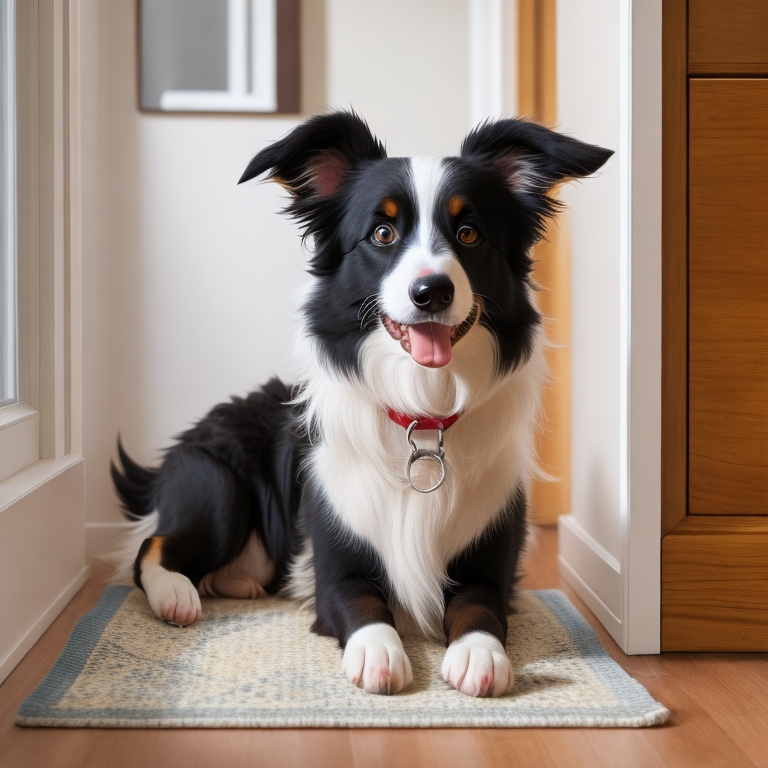
Importance of Early Socialization
Early socialization is crucial for Border Collies to succeed in sheepdog trials. Socializing your puppy with other dogs and humans is critical to ensure they learn proper behavior and manners in social situations.
Early exposure to different environments and stimuli will help your Border Collie adjust well to new situations and remain calm in competitive environments.
A well-socialized Border Collie will not only be better prepared for the environment of a competition, but it will also be easier to train and handle. A socialized puppy is more likely to understand and respond to commands, making the training process smoother and less stressful for both the dog and the trainer.
Socialization should begin as early as possible, ideally before the puppy is 12 weeks old.
At this age, they are still in their socialization period, and they are more receptive to new experiences. However, it is never too late to start socializing your Border Collie, and it can even be done at an older age with patience and persistence.
In summary, early socialization is a crucial component of training Border Collies for sheepdog trials.
It helps them to develop good behavior and manners in social situations, prepares them for new experiences, and makes the training process smoother and more effective. Start socializing your Border Collie as early as possible to increase their chances of success in sheepdog trials.
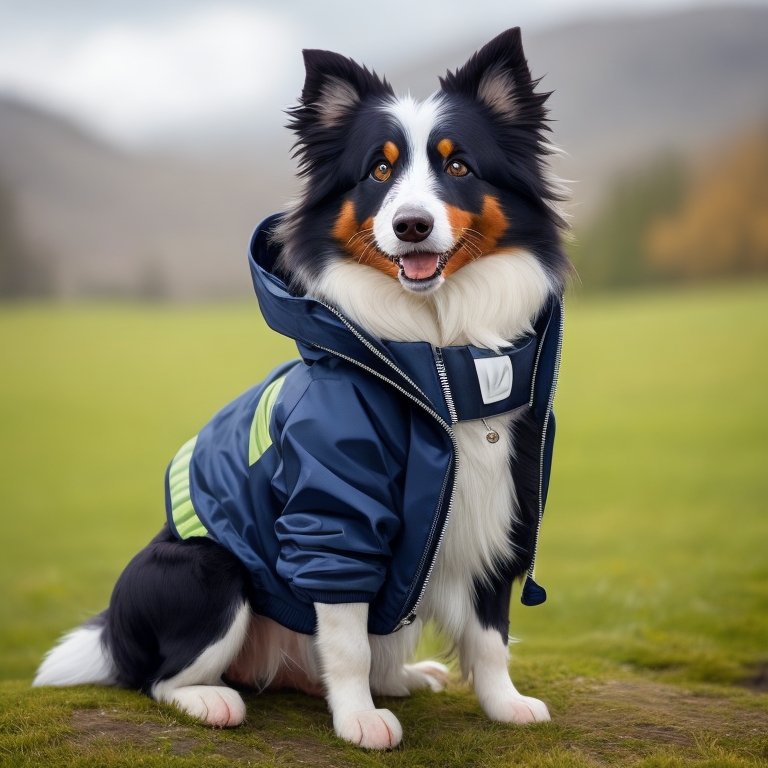
Challenges in Training Border Collies for Sheepdog Trials
Competition-Level Training Requirements
To train Border Collies for competition-level sheepdog trials, you need to devote significant time and effort to their training. Some of the essential requirements include:
- Exceptional Physical Fitness: The dogs must be in excellent physical shape to handle the rigorous demands of the competition. You should maintain their fitness by regularly exercising them.
- Mastering Commands: Border Collies must learn a range of commands, such as “come bye,” “away,” and “that’ll do.” These commands will enable them to control the sheep and successfully complete the trials.
- Specialized Skills: The dogs must learn to navigate obstacles and work in a variety of challenging terrains to be successful in the trials.
- Intense Focus: The dogs must have a keen focus on their tasks as they work with sheep in high-pressure environments.
- Consistent Training: Border Collies must receive consistent and regular training to fully grasp the skills necessary for successful competition-level sheepdog trials.
These requirements demand perseverance, patience, and a willingness to meet the unique challenges border collies face in training for competition-level sheepdog trials. While it may be difficult and challenging, with proper training, your border collie can reach their full potential and excel in sheepdog trials.
Behavioral and Temperamental Challenges
Training Border Collies for competitive sheepdog trials can pose several behavioral and temperamental challenges. These challenges often arise due to their high intelligence, strong desire to work and their herding instinct.
Here are some common behavioral and temperamental challenges that trainers may encounter while training Border Collies for sheepdog trials:
- Overexcitement: Border Collies can get overexcited while herding which can lead to behavioral issues such as excessive barking, chasing, and physical confrontations.
- Stressed reactions: Border Collies are highly sensitive and can get easily stressed due to noises, sudden movements, or unfamiliar surroundings, making it difficult for them to focus on training.
- Independent nature: Border Collies are intelligent and independent dogs who often need motivation and positive reinforcement to follow instructions. Without proper motivation and training, they may ignore the trainer’s commands or do things their way.
- Perfectionism: Border Collies have a strong work ethic and desire for perfection, but this can also lead to overthinking and obsessing over small details, making them anxious and stressed.
Trainers must address these behavioral and temperamental challenges by carefully observing and monitoring their Border Collies during training, providing positive reinforcement, and ensuring proper socialization to prevent any stress or anxiety. A well-trained and well-socialized Border Collie can be a perfect candidate for competitive sheepdog trials.
Success Stories of Border Collies in Sheepdog Trials
Overview of Accomplished Border Collies
Border Collies have a well-established reputation as exceptional herding dogs, and many have become accomplished in competitive sheepdog trials. These competitions test a dog’s ability to gather and control livestock through a series of obstacles within a specific time frame while farmers, judges, and spectators watch.
There are countless success stories from accomplished Border Collies across the world, each with distinct strengths, personality, and working styles.
Notable mentions include Roy, Nell, Cap, and Sweep, who excelled at the International Sheep Dog Trials held annually in Scotland. Other outstanding Border Collies include Wiston Cap, Breck, and Kinloch Levi, who have won several championships and awards in different countries.
Each dog has unique characteristics that allowed them to excel, such as intelligence, agility, patience, strong instincts, and communication skills.
Moreover, the handlers also have a significant contribution to these achievements. They devoted significant time, effort, and resources to train and condition their dogs to meet and exceed the challenges presented in the competitions.
Overall, there are countless successful stories of Border Collies that have significantly contributed to the prominence of the breed in competitive sheepdog trials.
The bond between the dog and handler, along with the dog’s inherent traits, determination, and drive to succeed, make this breed an excellent candidate for competitive sheepdog trials.
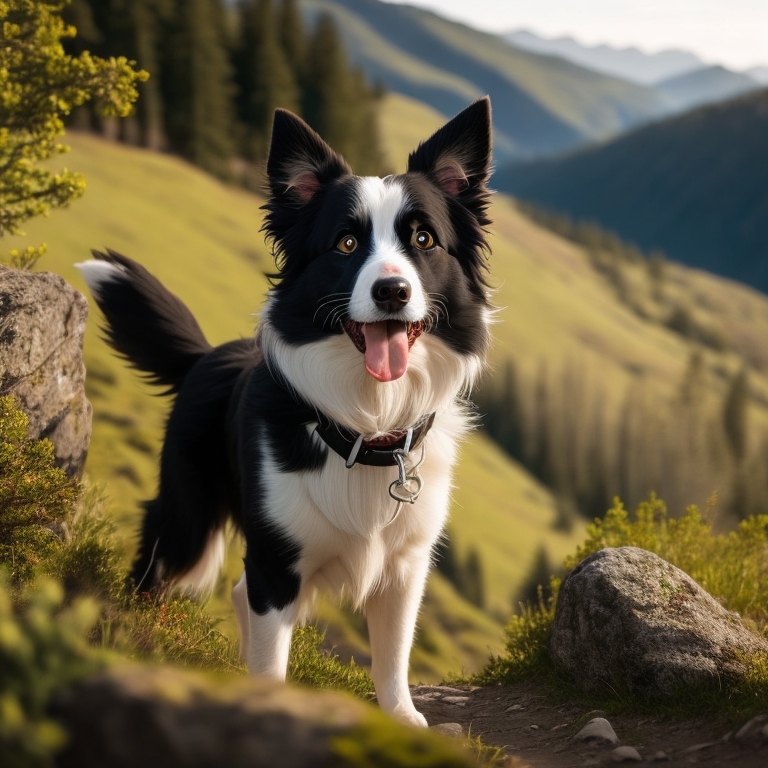
Key Factors Contributing to Their Success
Let’s talk about the most critical elements that contributed to the success of Border Collies in sheepdog trials:
1. Natural Instinct:
Border Collies are born with a natural instinct to work hard and herd livestock. They’re intelligent, agile, and have excellent problem-solving capabilities.
2. Training:
Proper training is paramount for Border Collies to succeed in sheepdog trials. They require early and consistent socialization and training to develop good behavior and obedience.
The training primarily involves type commands such as directing the dog to execute different actions.
3. Genealogy:
Successful Border Collies possess genealogy that provides excellent herding capabilities. Their ancestors were bred for the specific purpose of herding and working livestock.
4. Health and Fitness:
To perform at their best, Border Collies need to be in top physical health, with an appropriate diet and exercise regime.
5. Breeder Selection:
Choosing a breeder that has a track record of producing successful Border Collies can significantly impact the dog’s herding potential. These key factors play a crucial role in the success of Border Collies in sheepdog trials.
A combination of genetics, training, and overall care contribute to a Border Collie’s ability to perform exceptionally well in sheepdog trials.
Conclusion
Border Collies are remarkably intelligent and trainable dogs that can excel in competitive sheepdog trials with proper training and socialization. These dogs have been bred for centuries for their herding instincts and serve as excellent working dogs.
Using positive reinforcement techniques, early socialization, and consistent training, Border Collies can successfully navigate the competitive sheepdog trials, even with behavioral and temperamental challenges.
Moreover, successful Border Collies in sheepdog trials serve as examples of their remarkable intelligence, training, and talents. In the end, with the right training, patience, and passion, Border Collies can achieve greatness on the competitive sheepdog trial circuit.
It is up to us to provide them with the necessary resources to thrive and achieve their full potential.

